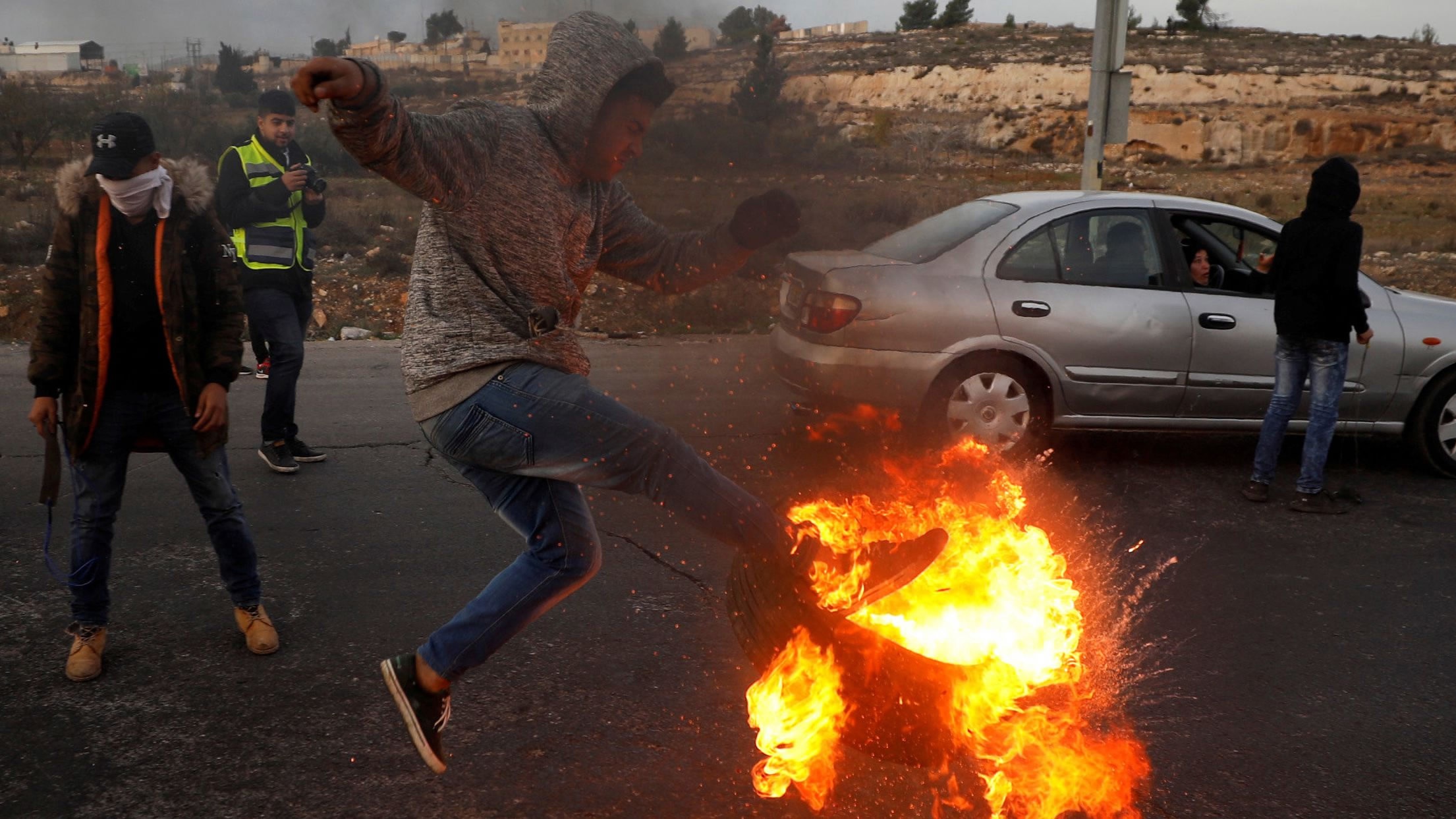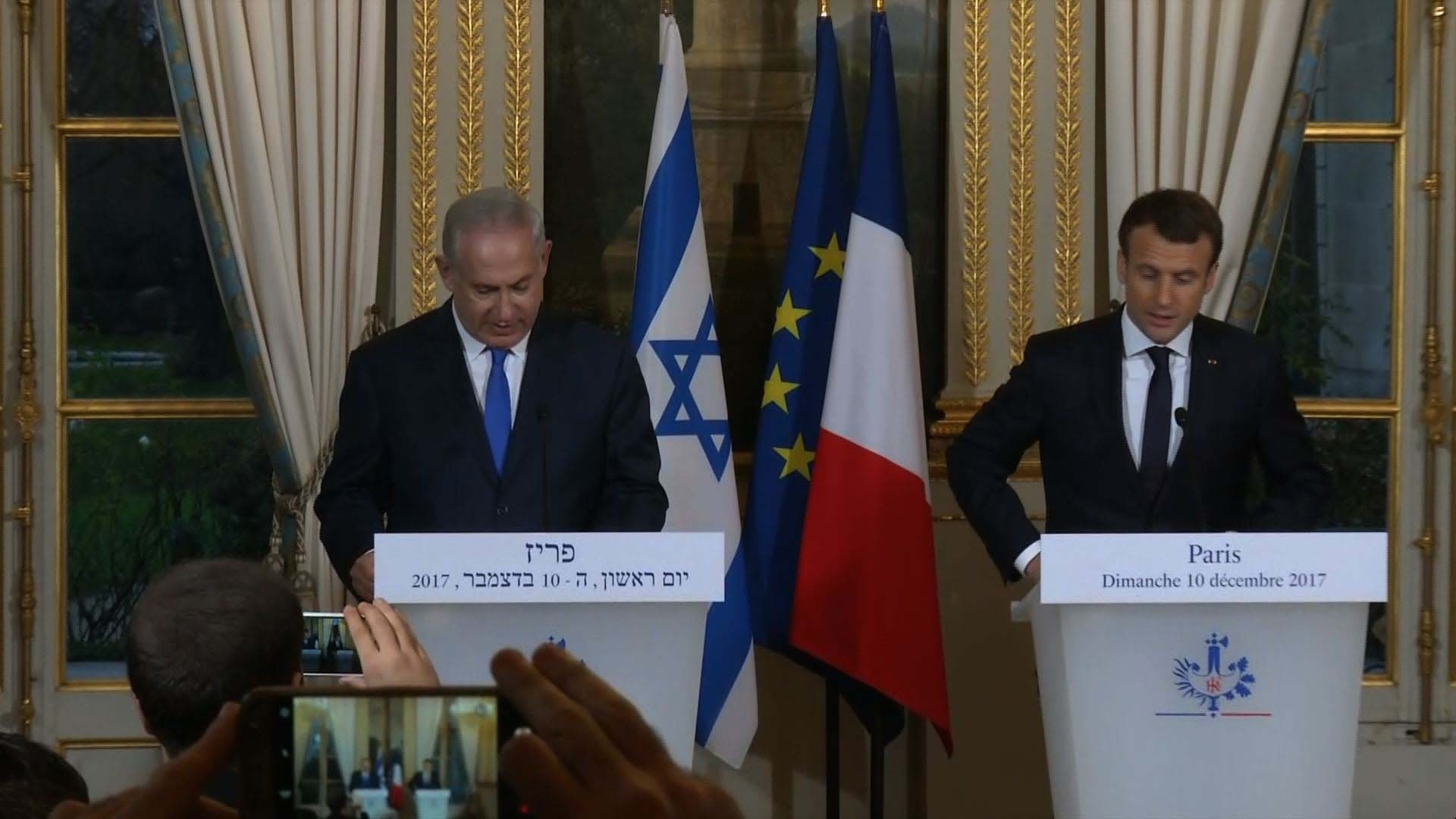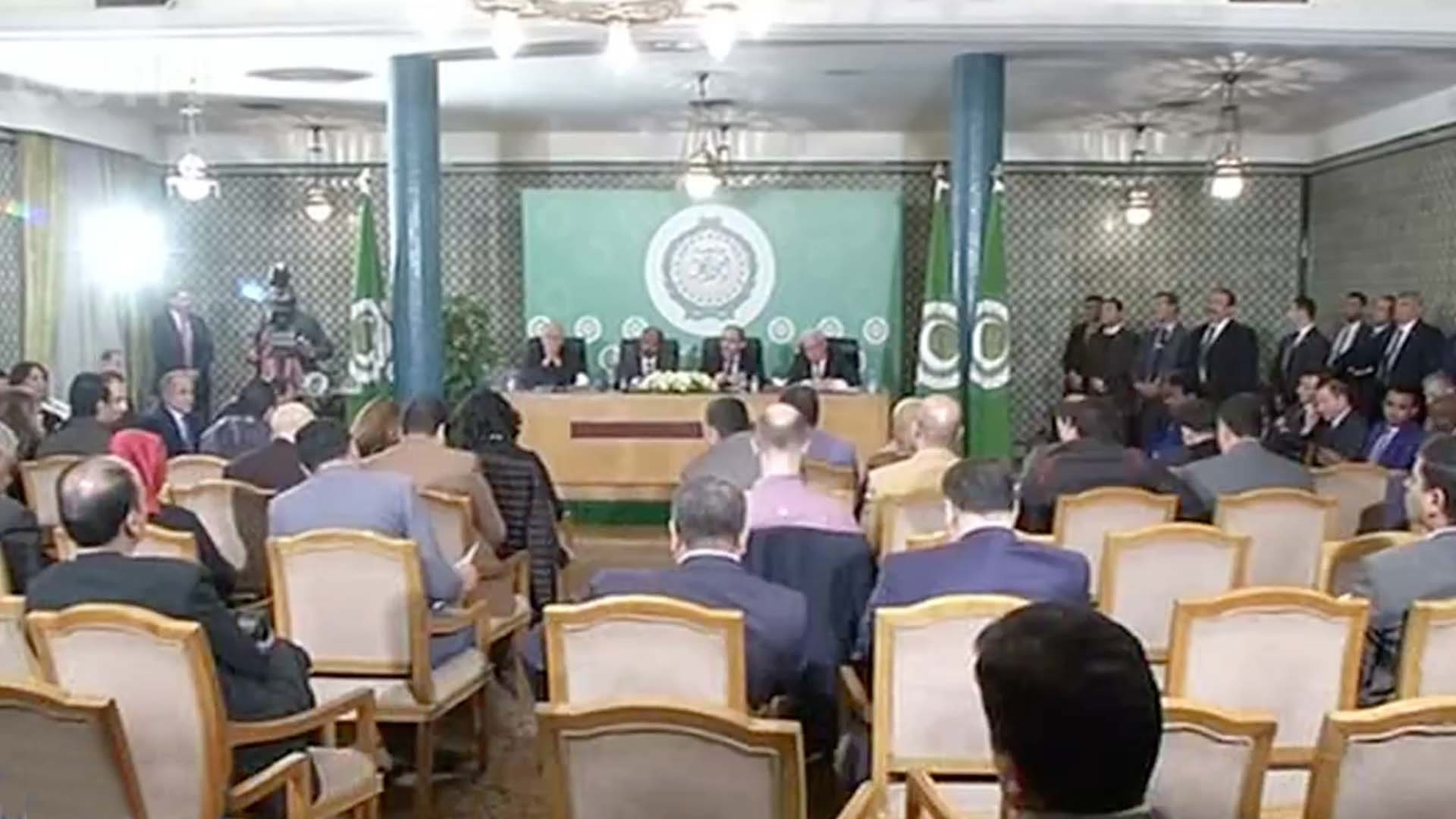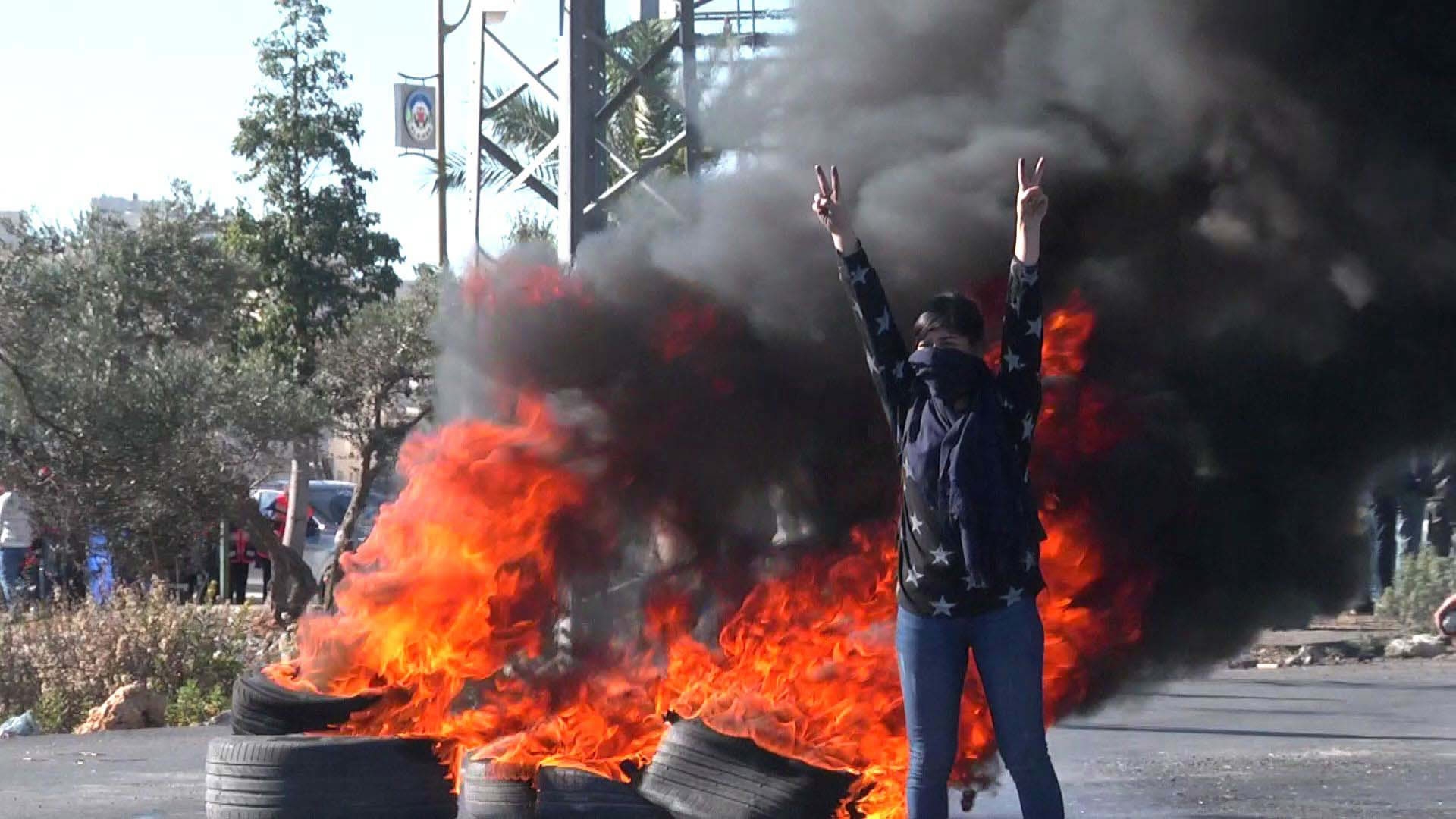Protests, violence and diplomatic outrage followed US President Donald Trump’s decision to recognize Jerusalem as the capital of Israel and start the process of moving the US embassy to the city on December 6.
But after a weekend in which hundreds were injured in Palestine and protests took place across the world, leaders are looking for a way forward.
Egyptian President Abdel Fattah al-Sisi invited Palestinian President Mahmoud Abbas to Cairo for talks and French President Emmanuel Macron urged Israel to break the impasse, amid speculation about a broader deal the Trump administration insists is in the pipeline.
Palestine and Israel
Palestinian leaders held a series of meetings over the weekend to discuss how to deal with the fallout from Trump’s decision to reverse decades of US policy.
A meeting of the PLO Central Council is expected to take place early this week.
A scheduled meeting between Palestinian President Mahmoud Abbas and US Vice President Mike Pence in late December has already been ruled out, and an invitation to meet Trump in Washington is likely to be rejected.
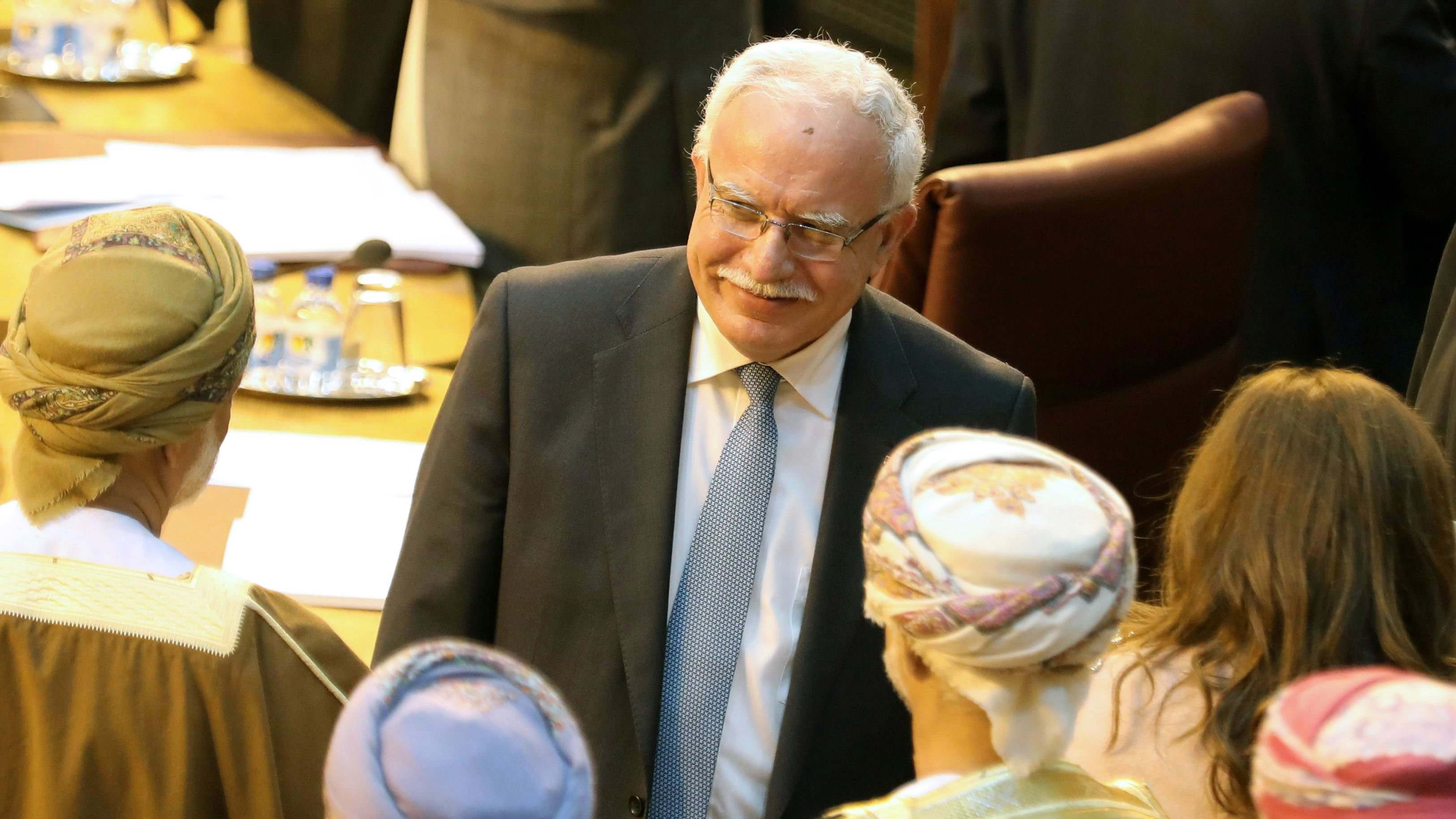
Palestinian National Authority Minister of Foreign Affairs Riyad Al-Maliki
attends an Arab League foreign ministers emergency meeting in Cairo, Egypt on December 9,
2017. /Reuters Photo
Palestinian National Authority Minister of Foreign Affairs Riyad Al-Maliki
attends an Arab League foreign ministers emergency meeting in Cairo, Egypt on December 9,
2017. /Reuters Photo
Foreign Minister Riyad Al-Maliki said on Saturday that Palestine would be looking for a new broker for peace talks.
Israeli Prime Minister Benjamin Netanyahu, speaking in Paris alongside Macron on Sunday, said that Jerusalem had “never been the capital of any other people” and called on Palestinians to “get to grips with the reality.”
"The sooner the Palestinians come to grips with this reality, the sooner we will move towards peace," he added.
Diplomatic response
US role in peace process
Trump’s decision has been condemned across the world, with many saying it undermined both the Middle East peace process and the US' role as an unbiased mediator in it.
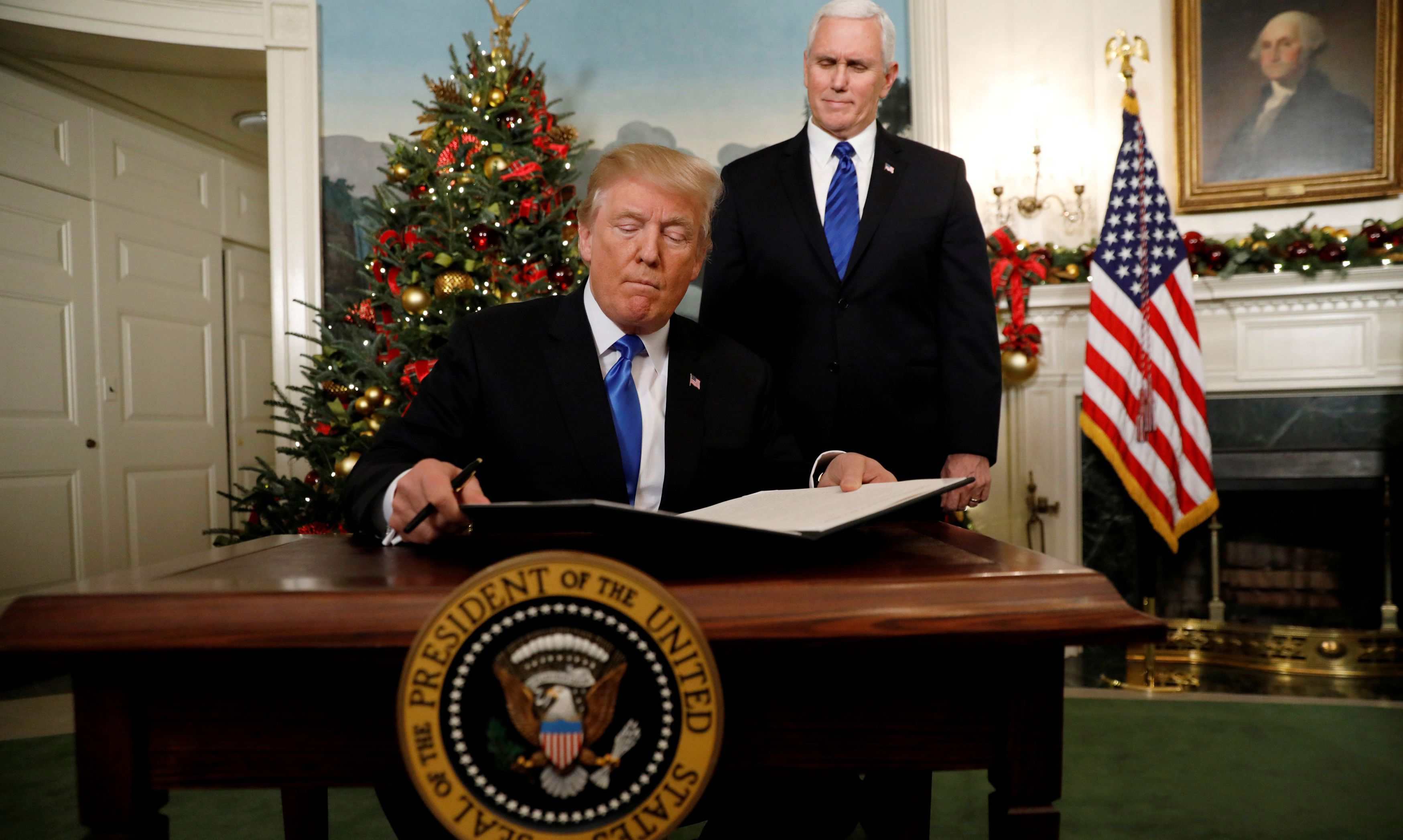
US Vice President Mike Pence stands by as US President Donald Trump signs a
proclamation that states the US recognizes Jerusalem as the capital
of Israel, in Washington, US on December 6, 2017. /Reuters Photo
US Vice President Mike Pence stands by as US President Donald Trump signs a
proclamation that states the US recognizes Jerusalem as the capital
of Israel, in Washington, US on December 6, 2017. /Reuters Photo
However, the US insists it remains committed to playing an active role in brokering a peace deal.
On Sunday, US Ambassador to the United Nations Nikki Haley insisted the US was "as committed to the peace process as we've ever been.” She said the US had not taken a view on the final status of Jerusalem or borders, adding that this remained a matter for the Palestinians and Israelis to decide.
A draft proposal is being drawn up by the US, amid speculation that a broad plan involving Saudi Arabia could be in the works.
Egypt’s role
Egypt's President Abdel Fattah al-Sisi, having played a key role in finding a solution to the recent saga in Lebanon, has invited Abbas to Cairo on Monday to discuss the fallout from Trump’s decision.
A statement released by the Egyptian president’s office said Sisi wanted to discuss "ways to deal with the crisis in a manner that preserves the rights of the Palestinian people and their national sanctities and their legitimate right to establish an independent state with East Jerusalem as its capital."
Sisi is also scheduled to meet Pence when the US vice president is in the region in late December.
Europe’s role
Netanyahu arrived in Brussels on Monday for talks with Europe's foreign ministers, in the first visit to the EU headquarters by an Israeli premier in 22 years.
Speaking at a press conference alongside EU foreign policy chief Federica Mogherini, Netanyahu said he expected Europeans to follow Trump’s lead in recognizing Jerusalem as Israel’s capital.
Mogherini told reporters that the bloc would continue to recognize the "international consensus" on Jerusalem.
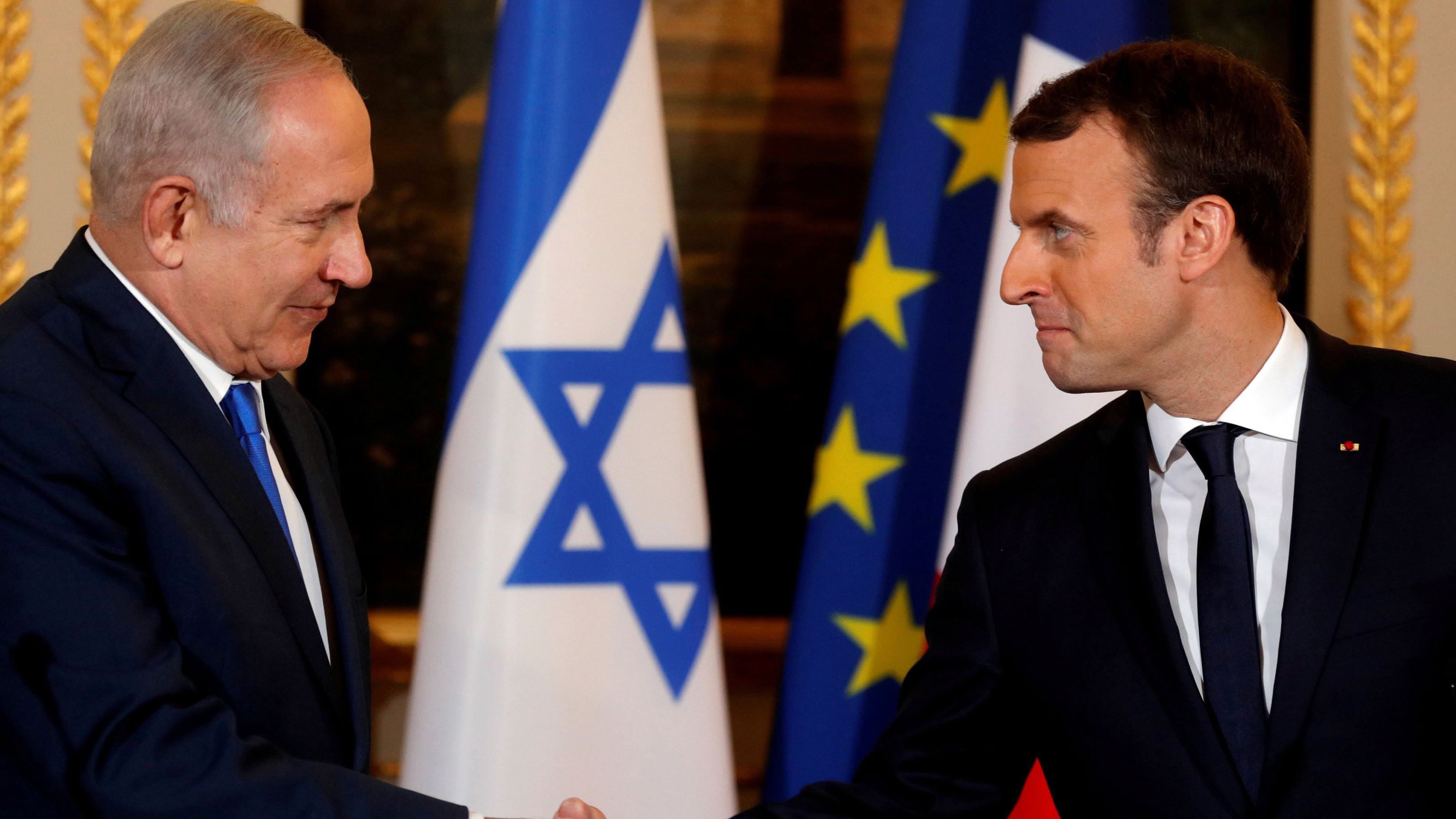
Israeli Prime Minister Benjamin Netanyahu and French President Emmanuel Macron attend a joint news conference at the Elysee Palace in Paris, France on December
10, 2017. /Reuters Photo
Israeli Prime Minister Benjamin Netanyahu and French President Emmanuel Macron attend a joint news conference at the Elysee Palace in Paris, France on December
10, 2017. /Reuters Photo
Netanyahu's
talks with French President Emmanuel Macron on Sunday were dominated by the Jerusalem issue.
Macron, who is increasingly involved in Middle East peace issues, urged Netanyahu to “make some courageous gestures towards the Palestinians” and suggested a freeze on settlement construction could be a first step.
The French president again condemned the unilateral decision on Jerusalem as "contrary to international law and dangerous for the peace process." However, he indicated it was too early to say whether France would seek a leading mediation role.
Turkey’s role
Turkish President Recep Tayyip Erdogan and French President Emmanuel Macron on Saturday said they had agreed to work together to try to persuade the US to reverse its decision.
Netanyahu and Erdogan engaged in a diplomatic spat over the weekend, meanwhile.
The Turkish leader on Sunday called Israel an "invader state" and a "terror state," to which Netanyahu responded: "I'm not used to receiving lectures about morality from a leader who bombs Kurdish villages in his native Turkey, who jails journalists, helps Iran go around international sanctions and who helps terrorists, including in Gaza, kill innocent people."
Arab League call
Foreign ministers, during an emergency Arab League meeting in Cairo on Saturday,
urged Washington to rescind its Jerusalem decision and called on the UN Security Council to condemn the move.
Abu Dhabi Crown Prince Sheikh Mohammed bin Zayed al-Nahyan warned at the weekend that the US decision "could throw a lifebuoy to terrorist and armed groups, which have begun to lose ground" in the Middle East.
Protests
Hundreds were injured in Palestine over the weekend, while violent protests took place in Lebanon, Egypt and Morocco and peaceful demonstrations occurred around the world.
Protests in Palestine appear to have calmed, although
demonstrations are expected to continue and, according to the Palestinian Red Crescent, 157 people were injured on Sunday alone in confrontations with Israeli forces.
The Israeli military on Sunday said it had
destroyed an “attack tunnel” dug by Hamas. It also responded with airstrikes in the Gaza strip, killing two gunmen, after rockets were fired from the area into Israel on Friday.
On Sunday, an Israeli security guard was stabbed and seriously wounded at Jerusalem's central bus station.
Worldwide protests
Lebanese security forces fired tear gas and water cannons at
protesters outside the US Embassy in Beirut on Sunday during a demonstration against Trump's decision. Israeli and US flags were burnt and fires set.
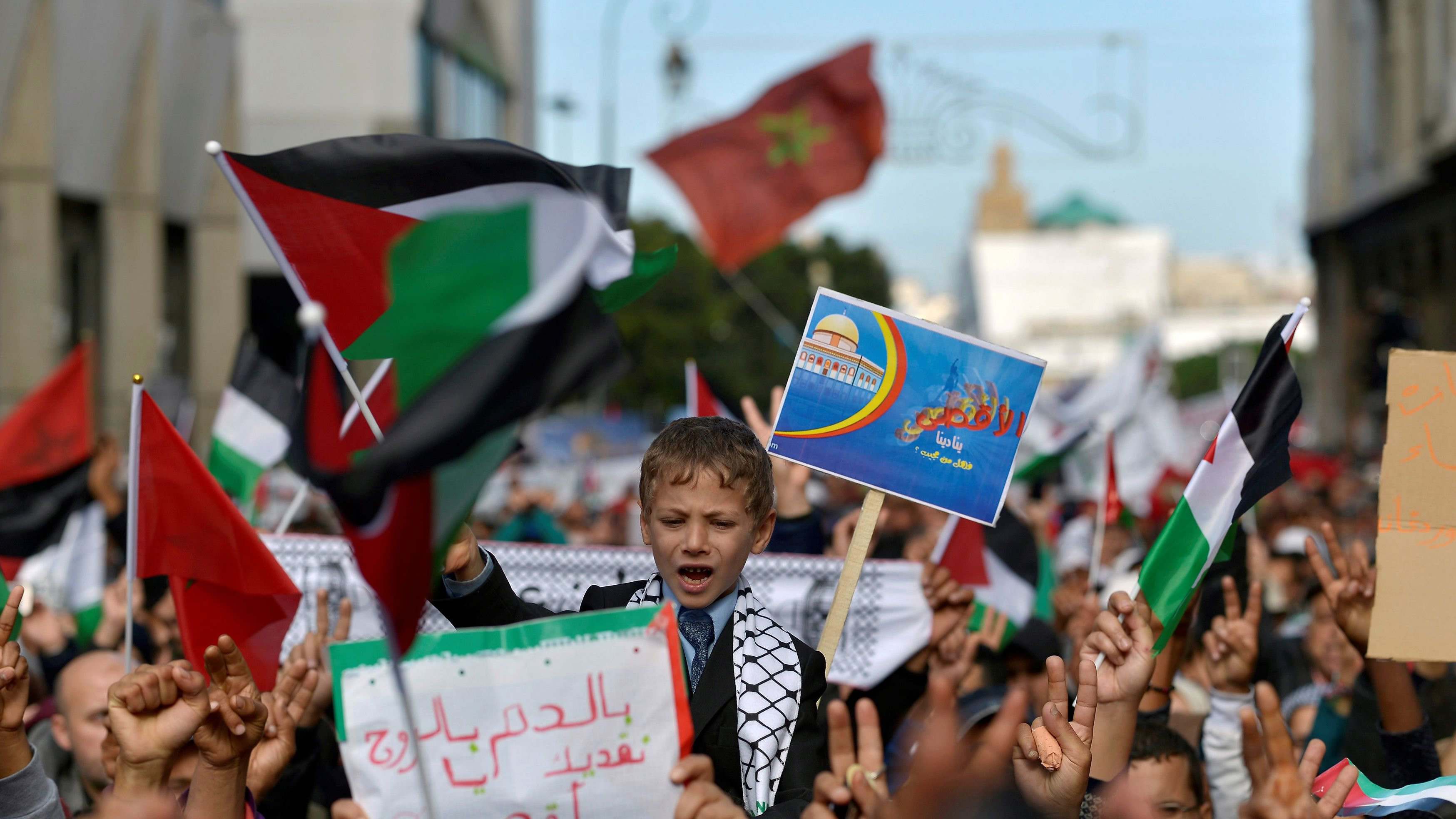
Demonstrators wave Moroccan and Palestinian flags during a protest against the
US decision to recognize Jerusalem as the capital of Israel, in the city of Rabat, Morocco on December 10,
2017. /Reuters Photo
Demonstrators wave Moroccan and Palestinian flags during a protest against the
US decision to recognize Jerusalem as the capital of Israel, in the city of Rabat, Morocco on December 10,
2017. /Reuters Photo
Tens of thousands of demonstrators marched in the Moroccan capital Rabat chanting anti-Israeli slogans, with some accusing Arab governments of “betrayal” for a perceived backing of the move.
Around 5,000 people demonstrated on the streets of the Indonesian capital Jakarta, and thousands demonstrated in Istanbul.
Protests also took place in Yemen, Syria and Pakistan.

